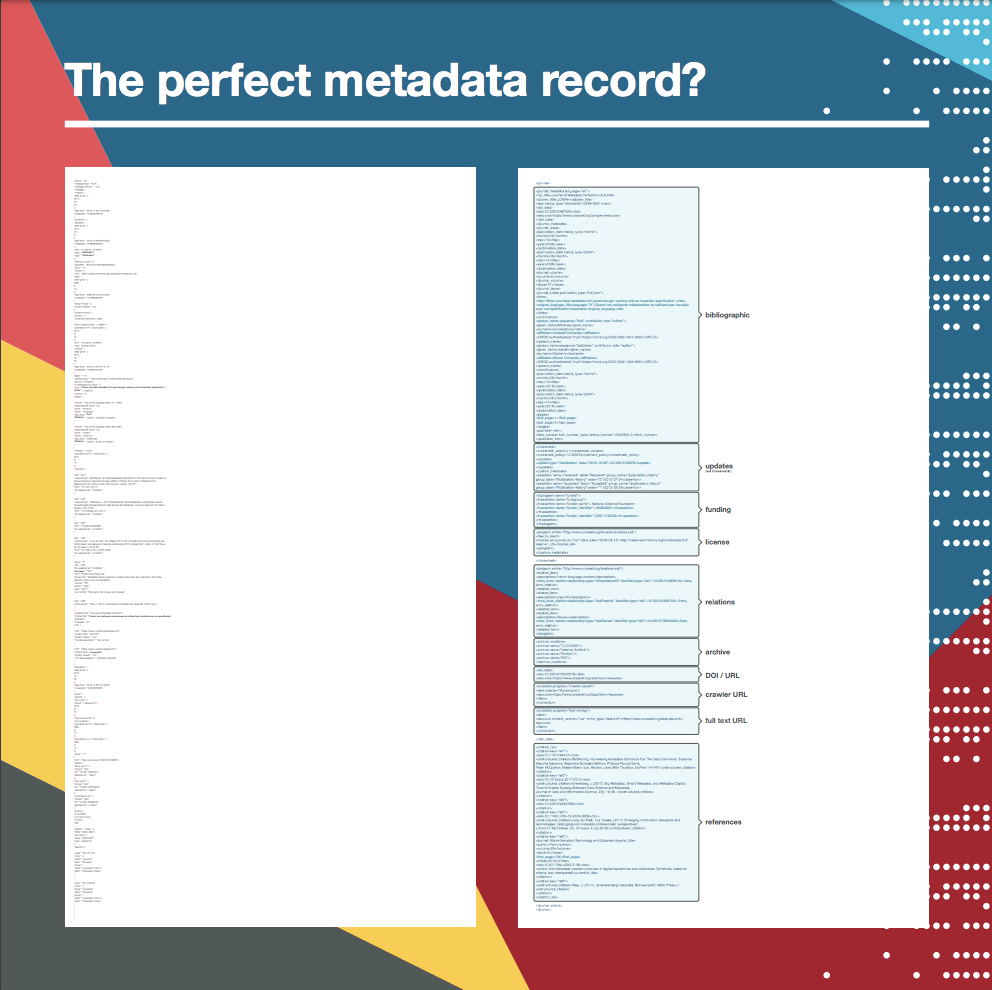
UPDATE, 12 December 2022 Due to the scheduled sunsetting of Metadata Manager, this title transfer process has been deprecated. Please find detailed guidance for transferring titles on our documentation site here.

UPDATE, 12 December 2022 Due to the scheduled sunsetting of Metadata Manager, this title transfer process has been deprecated. Please find detailed guidance for transferring titles on our documentation site here.

Running a smooth event is always the goal, but not always the case! No matter how well managed an event is, there is always a chance that things will not go according to plan. And so it was with LIVE18.
In my previous blog post, Matchmaker, matchmaker, make me a match, I compared four approaches for reference matching. The comparison was done using a dataset composed of automatically-generated reference strings.
As the end of the year approaches it’s useful to look back and reflect on what we’ve achieved over the last 12 months—a lot!
In its July 2018 meeting, the Crossref Board voted unanimously to approve and introduce a new set of membership terms.
Good governance is important and something that Crossref thinks about regularly so the board frequently discusses the topic, and this year even more so. At the November 2017 meeting there was a motion passed to create an ad-hoc Governance Committee to develop a set of governance-related questions/recommendations.
We’ve mentioned why data citation is important to the research community. Now it’s time to roll up our sleeves and get into the ‘how’. This part is important, as citing data in a standard way helps those citations be recognised, tracked, and used in a host of different services.
Matching (or resolving) bibliographic references to target records in the collection is a crucial algorithm in the Crossref ecosystem. Automatic reference matching lets us discover citation relations in large document collections, calculate citation counts, H-indexes, impact factors, etc.
At Crossref Labs, we often come across interesting research questions and try to answer them by analyzing our data. Depending on the nature of the experiment, processing over 100M records might be time-consuming or even impossible. In those dark moments we turn to sampling and statistical tools.
A couple of weeks ago we shared with you that data citation is here, and that you can start doing data citation today. But why would you want to? There are always so many priorities, why should this be at the top of the list?

Our LIVE Annual Meeting is back in North America for the first time since 2015, and with just 10 days to go, there’s a lot going on in preparation. As you’d expect with a How good is your metadata?